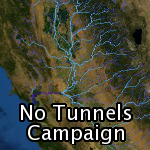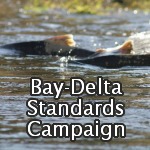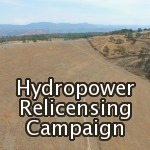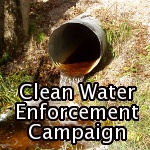The United States Supreme Court has declined to hear an appeal regarding the California State Water Resources Control Board’s authority to set mandatory conditions in the new operating licenses for four hydroelectric projects. The appeal was filed jointly by the Merced Irrigation District (Merced ID), Yuba County Water Agency (YCWA) and the Nevada Irrigation District (NID) in February 2023.
The denial in the Supreme Court’s May 15, 2023 “Order List” means that the State Water Board will set conditions for Merced ID’s Merced River Project and Merced Falls Hydroelectric Project on the lower Merced River; YCWA’s Yuba River Development Project on the lower Yuba, North Yuba, and Middle Yuba rivers; and NID’s Yuba-Bear Hydroelectric Project on the Middle Yuba, South Yuba, and Bear rivers.
The water agency and irrigation districts sought to overturn an August 2022 ruling by the U.S. Court of Appeals for the Ninth Circuit. The Ninth Circuit Court overruled and vacated orders issued by the Federal Energy Regulatory Commission (FERC) in which FERC held that the State Water Board had “waived” its authority under Section 401 of the Clean Water Act to issue a “water quality certification” for each of the projects.
As part of the licensing process, Section 401 of the Clean Water Act requires license applicants to request that the state certify that the new licenses will protect water quality as required by state law. The Clean Water Act gives states a year to “act” on certification. In these cases, the applicants withdrew their requests for certification before one year expired. FERC found that the State Water Board was complicit in delay by predicting and accepting these withdrawals. After consolidating the cases into one proceeding, a panel of judges from the Ninth Circuit ruled there was no “substantial evidence” that the Board caused delay in these cases.
The California Sportfishing Protection Alliance (CSPA), South Yuba River Citizens League, Friends of the River, and the Sierra Club and its Mother Lode and Tehipite chapters were the environmental litigants in this case. Representing them were Julie Gantenbein of Water Power Law Group and Andrew Hawley of Western Environmental Law Center; Scott L. Nelson of the public interest law firm Public Citizen joined in drafting and filing a brief opposing review by the Supreme Court. Attorneys for environmental litigants coordinated their case with the California Department of Justice, who filed a brief in opposition on behalf of the State Water Board.
As reported by CSPA in April 2023, the Supreme Court also declined to hear a similar appeal regarding California’s authority to add mandatory conditions in the new licenses for two hydroelectric projects on the Tuolumne River. That appeal, filed by Turlock Irrigation District and Modesto Irrigation District, involved a somewhat different fact set but the same type of effort to create and slip through a loophole in the state’s authority to regulate under the Clean Water Act.
The Supreme Court’s denial ends one chapter in the hydropower industry’s attack on Section 401 of the Clean Water Act. The rejection by two federal courts of industry’s faulty and time-consuming legal and procedural schemes helps to restore process discipline to the hydropower licensing process. Regrettably, the water quality certifications for these projects on the Merced River, Yuba River, and Bear River, as well as the projects on the Tuolumne River, are also under legal challenge by their licensees in state court.
Start to finish, CSPA spent over three years in defending Section 401 of the Clean Water Act in these cases. It began by taking the lead in gathering relevant facts and establishing lines of argument against each licensee’s request for FERC to find waiver of state authority. CSPA was well-placed for this task by virtue of 12 years of prior work on the Merced and Yuba-Bear relicensings and 9 years of prior work on the Yuba River Development relicensing. Effectiveness in this work takes tenacity, memory, and skill.
CSPA and allied organizations will continue to defend Section 401 of Clean Water Act, both by upholding state authority and insisting on its legally defensible application.









